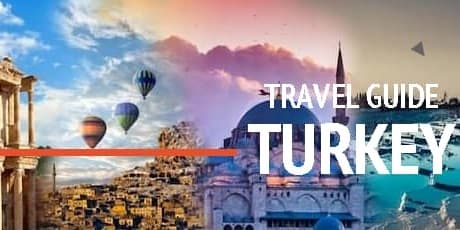
Welcome to our Turkey Travel Guide where you will find all the information you need for planning a trip to Turkey. Anyone who has been to Turkey for any length of time will tell you that it is a treasure trove of history, arts, culture, and natural beauty. But if you have not been or have yet to see more, our guide will help you decide where, when and how you might enjoy the delights of this amazing country.
Turkey is one of the most popular tourist destination in the world. When I think of Turkey, I associate it with its deep history, nature, cuisine, culture and people . There are 28 archaeological sites in Turkey that demonstrate the existence of the world’s earliest civilizations. Turkey has 44 national parks to safeguard the rich variety of natural heritage for the future of Planet Earth and new generations. The Turkish coastline is 8,333 km long and is bordered by four different seas: the Mediterranean Sea, the Black Sea, the Aegean Sea, and the Marmara Sea, which is connected to the Black Sea by the Bosphorus Strait and to the Aegean Sea. As of 2018, there are eighteen World Heritage Sites in Turkey, including sixteen cultural sites and two mixed sites.
From sandy beaches to snowy mountains, natural hot water springs to fairy chimenies, Ephesus to Istanbul it has lots to offer to its visitors in terms of history, nature, outdoor activities, cuisine, culture, art and more.
Turkey has a temperate climate and can be visited during most of the months of the year. This graph is an average of the principal cities and destinations. It is very representative of rainfall through most destinations. Summer months will be a little warmer in the southern regions and inland. Winters are a few degrees cooler in the northern areas and inland.
Go to https://en.wikipedia.org/wiki/Climate_of_Turkey for details of each major centre
As the graph below shows you will not want to plan a beach or Gullet holiday over the winter months but if you wrap up and carry an umbrella visiting the marvellous sights of say Istanbul will be fine in the winter.
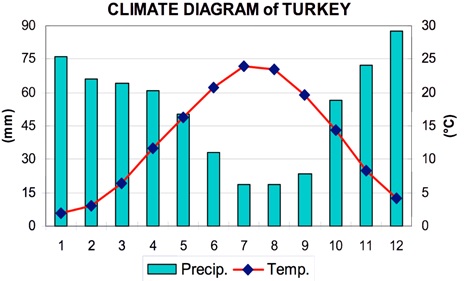
Please read our post about how Turkey is fighting against to corona virus. Please get the all information here.
Turkey is located between two continents, Europe and Asia. Around 97% of its land is located in Asia and also called Anatolia or Asia Minor. 3% of the country geographicaly is in Europe and called Thrace.
3 Sides of Turkey are surrounded by seas, Black Sea, Aegean Sea and Mediterrean. Sea of Marmara is a kind of inner sea and linked to Aegean and Black Seas through from Dardanelles and Bosphorus Straits.
Its neighbours are Greece, Bulgaria, Georgia, Armenia, Iran, Irak and Syria.
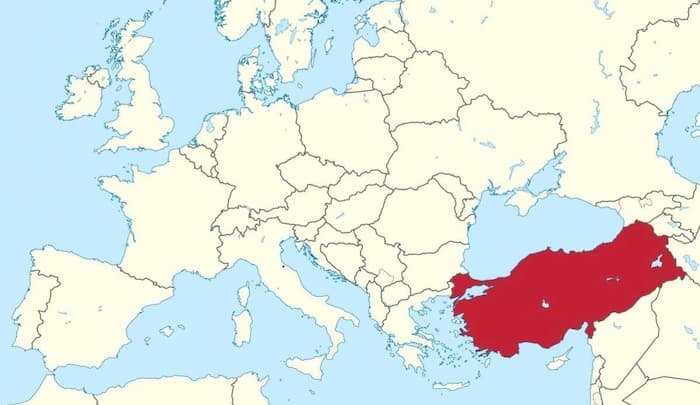
Ordinary passport holders are required to have visa to enter Turkey. They can obtain one month multiple entry e-Visas via the website www.evisa.gov.tr or three month period multi entry visas from Turkish diplomatic representations abroad.
For more detailed information, please check the page of Republic of Turkey, Ministery of Foreign Affairs’ Visa Information Page for Foreigners
Because of Turkey’s geographical conditions, one can not speak about a general overall climate. In Istanbul and around the sea of Marmara the climate is moderate. Winter is from December til March. During winter, the average temperature is 4 degrees Celsius (39.2 degrees Fahrenheit). It snows only 1-3 days. Summer is from June til September with 27 degrees Celsius (39 and 80 degrees Fahrenheit). It is generally hot and dry. In Western and Southern Costs, there is a mild Mediterranean climate with average temperatures of 9°C (48.2°F) in winter and 29°C (48-84°F) in summer.
The climate of the Inner Turkey is a continental climate. (there is a great temperature difference between day and night). Rainfall is low and there is more snow. The average temperature is 23 ° C (73°F) in summer and -2 (28°F) in winter. The climate in the Black Sea area is wet, warm and humid. In Eastern Anatolia there is a long hard winter and its almost like mountain climate. Winters are generally snowy, summers are dry and hot.
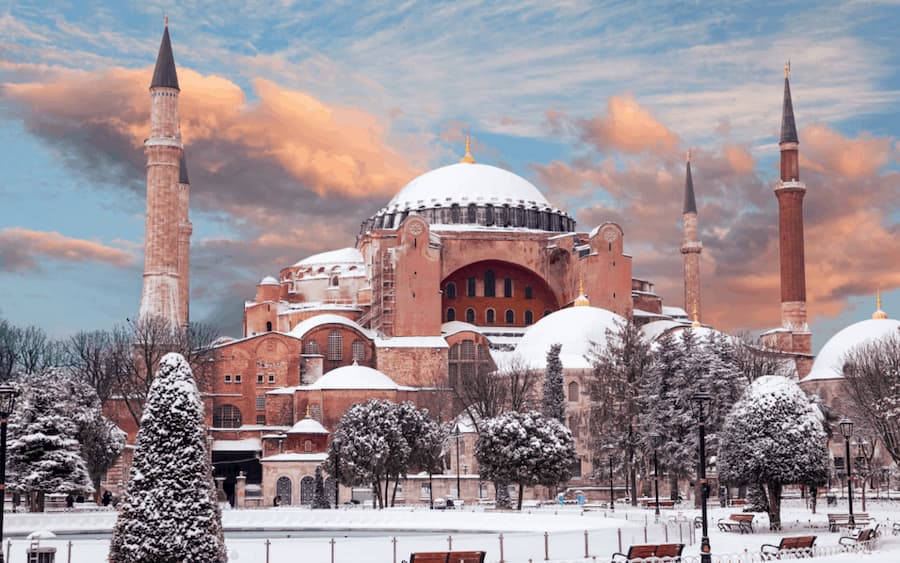
Turkish currency is Lira (short: TL), and that is the best currency to use in Turkey. So, Below is the actual live link that shows the exchange rate
At the main tourist sites, you can also pay with Dolar or Euro at the Restaurants, Hotels and Shops. Usage of credit card is very common. But generally cash is more desirable due to commission rates of banks.
The majority of the exchange offices advertise “no commission policy”. While it is true that they don’t charge the typical commission, they do set their own exchange rates.
Cash machines are almost located everywhere. Mainly you can only withdraw Turkish Lira. You may withdraw Euro or Dollar from the Cash Machines near by the tourist sites, if the signs of the currencies are indicated on the machine.
From May to November is the season for the beach resorts. From December to March is the season for Ski Resorts. If you will have a Turkey tour or any other cultural activity then Fall (March to June , September to November) is the best because the temperature is mild and weather is generally sunny.
But if you are considering to visit Eastern Turkey and Blacksea Region then the best time is from April to November. Winters are so cold there and you can easily stuck in a snow storm.
Traveling to Turkey from anywhere in Europe is quite easy. Almost all the airlines have direct flights from all over Europe, Asia and Africa to all major Turkish cities such as Istanbul, Antalya, Izmir, Trabzon and Ankara. Besides, all the cities are connected to Istanbul throughout the year. For the detailed information on flights scheduled to Turkey consult the Skyscanner website.
Turkish Airlines has direct flights from United States and Latin America.
Also, here are websites for the main Turkish flight companies;
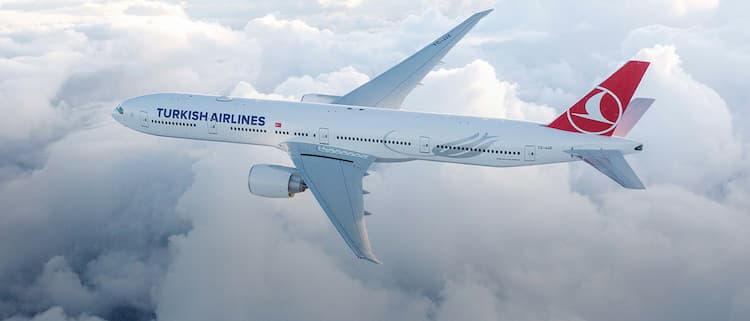
Turkey’s roads and highway are great and covers the entire country like spider web. So, the best way travelling around Turkey is by car. All the cities are connected to each other with 4 lane roads or highways. But you should study on a map first because of the distances. From one corner to the other is about 1300 miles = 2100 km
Turkish airports are very accessible too. There are 57 airports in Turkey and 36 of them offers both international and domestic flights while 19 offer regional flights accross Turkey. Flights are also very practical to travel in Turkey
Public Transportation is available in every towns and cities. There are public buses and shared minivans (dolmush) are available in every town. Also there are subways and trams are available in the big cities as well like Istanbul, Ankara and Izmir. They cost less than a dollar.
Ferries are available especially in Istanbul and Izmir. They are very practical and save time because of dense traffic. Again they are very inexpensive and cost less than a dollar.
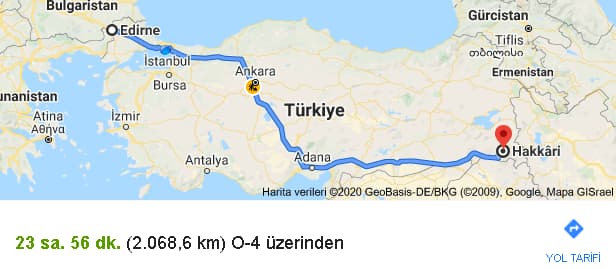
Turkey has holiday resorts mainly located by the Aegean and Mediterrean cost line. All the resorts are very popular with their sandy beaches, sea front resort hotels. They mainly welcome holidaymakers from Russia, Germany and UK. Generally hotels are on all inclusive basis and visitors stay at the same hotel during the entire vacation. So, here are the list of the famous Holiday Resorts in Turkey.
Also Turkey offers more for history and nature lovers too. On the other hand, If you are a this kind person, it is better to join a group or private tour. Itineraries are prepared first and you follow it with your guide. In this kind of a vacation, you can not stay in the same hotel as you need to keep moving for the next destination. Just to see some of them, you need at least 10 days in Turkey. (not all) . Therefore, Our recommended Tour Operator in Turkey is Impetus Travel. Here are the some sights for history and nature lovers;
Before you Travel to Turkey, it is better to make a plan forhead. As the country is so big and the numbers of the sites are too much, time can be an issue.
Today the country offers visitors 715,692 beds and 2800 hotels.
The majority of these are located in the southern city of Antalya which has a long background in tourism offering over 400,000 beds and 260 five-star hotels. Istanbul offers 94,000 beds across 1320 establishments, while Muğla and Izmir hold 90,000 and 29,000 beds, respectively.
Within Turkey there are 165 chain hotels, with internationally branded facilities comprising 15% of the total. Hilton International’s portfolio is the largest in the segment, offering 22 facilities spread across 15 cities, with a further 23 under development. Hilton International are followed by Intercontinental Group with 16 hotels, Anemon Hotels (16), Best Western International (15), Dedeman Hotels (14), and Crystal Hotels Resorts and Spa (11). Others, including Accor Hotels Turkey, Rixos Hotels, Wydham Hotels and Marriott, Mandarin, Four Seasons, Kempinski also have a presence in Turkey.
So, Turkey offers hotels for every budget and requirement from Hostels to 5 Star Hotels. If you need consultancy about accommadation or your Travel to Turkey, just mail me on info@impetustravel.com
Turkey uses 220V, 50 Hz frequency, and standard European type C & F plugs. Both are similar plugs with two round prongs with 19 mm between the two.
If plugs of your devices are different, you will certainly need an adapter in order to charge them. It is better to get one before you arrive. Sometimes receptions may not have it. You can find one here.
Western Style flushing toilets are used in hotels, restaurants, museums and public toilets in Western Turkey while traditional “squat” toilets are often found in bus stations and more rural areas, especially Eastern Turkey. Many public toilets in Turkey require payment (normally around 2-3 Turkish Liras).
Most tour and hotel staff appreciate small tips given with discretion but it is not mandatory. Taxis do not expect tips but rounding up the fare for convenience is common. In restaurants, the normal amount to tip is 10% of the bill depending on how happy you are with the service.